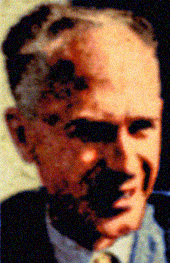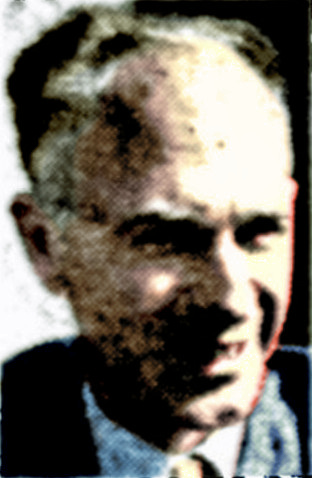The Pittsburgh Press (December 2, 1942)

Roving Reporter
By Ernie Pyle
Ernie Pyle has arrived in North Africa to write a new series about U.S. troops abroad. This, the first, tells how the soldiers lived when they arrived in the new battle zone.
WITH U.S. FORCES IN ALGIERS (Dec. 1, by wireless) – From now onward, stretching for months and months into the future, life is completely changed for thousands of American boys on this side of the earth. For at last they are in there fighting.
The jump from camp life into frontline living is just as great as the original jump from civilian life into the Army. Only those who served in the last war can conceive of the makeshift, deadly urgent, always-moving-onward complexion of frontline existence. And existence is exactly the word: it is nothing more.
The last of the comforts are gone. From now on, you sleep in bedrolls under little tents. You wash whenever and wherever you can. You carry your food on your back when you are fighting.
You dig ditches for protection from bullets and from the chill north wind off the Mediterranean. There are no more hot-water taps. There are no post exchanges where you can buy cigarettes. There are no movies.
When you speak to a civilian, you have to wrestle with a foreign language. You carry enough clothing to cover you, and no more. You don’t lug any knickknacks at all.
When our troops made their first landings in North Africa, they went four days without even blankets, just catching a few hours’ sleep on the ground.
Clothes for generations to come
Everybody either lost or chucked aside some of his equipment. Like most troops going into battle for the first time, they all carried too much at first. Gradually they shed it. The boys tossed out personal gear from their musette bags and filled them with ammunition. The countryside for 20 miles around Oran was strewn with overcoats, field jackets and mess kits as the soldiers moved on the city.
Arabs will be going around for a whole generation clad in odd pieces of American Army uniforms.
At the moment, our troops are bivouacked for miles around each of three large centers of occupation – Casablanca, Oran and Algiers. They are consolidating, fitting in replacements, making repairs – spending a few days taking a deep breath before moving on to other theaters of action.
They are camped in every conceivable way. In the city of Oran, some are billeted in office buildings, hotels and garages. Some are camping in parks and big vacant lots on the edge of town. Some are miles away, out in the country, living on treeless stretches of prairie. They are in tiny groups and in huge batches.
Some of the officers live in tents and sleep on the ground. Others have been lucky enough to commandeer a farmhouse or a barn, sometimes even a modern villa.
The tent camps look odd. The little low tents hold two men apiece and stretch as far as you can see.
There are Negro camps as well as white.
You see men washing mess kits and clothing in five-gallon gasoline cans, heated over an open fire made from sticks and pieces of packing cases. They strip naked and take sponge baths in the heat of the day. In the quick cold of night, they cuddle up in their bedrolls.
The American soldier is quick in adapting himself to a new mode of living. Outfits which have been here only three days have dug vast networks of ditches three feet deep in the bare brown earth. They have rigged up a light here and there with a storage battery. They have gathered boards and made floors and sideboards for their tents to keep out the wind and sand.
In the evening by the moonlight
They have hung out their washing, and painted their names over the tent flaps. You even see a soldier sitting on his “front step” of an evening playing a violin.
Even in this short waiting period, life is far from static. Motor convoys roar along the highways. Everything is on a basis of “not a minute to spare.” There is a new spirit among the troops – a spirit of haste.
Planes pass constantly, eastbound. New detachments of troops wait for orders to move on. Old detachments tell you the stories of their first battle, and conjecture about the next one. People you’ve only recently met hand you slips of paper with their home addresses and say, “You know, in case something happens, would you mind writing…”
At last, we are in it up to our necks, and everything is changed, even your outlook on life.
Swinging first and swinging to kill is all that matters now.
The town as a whole has been turned back to the French, but the Army keeps a hand raised and there will be no miscues.

